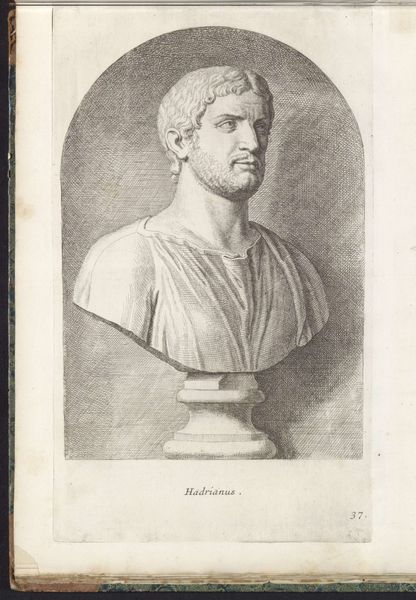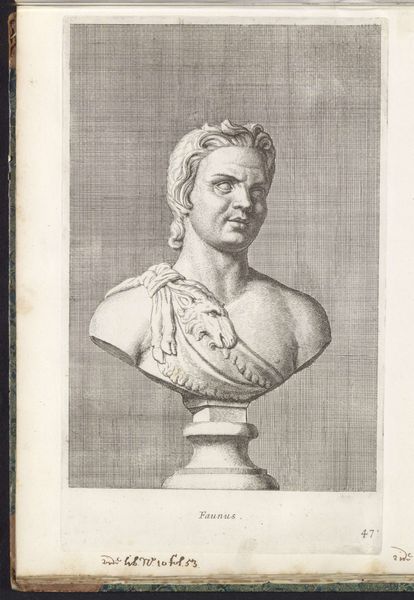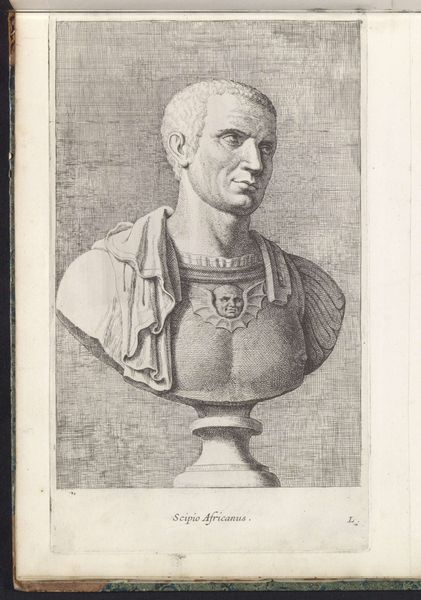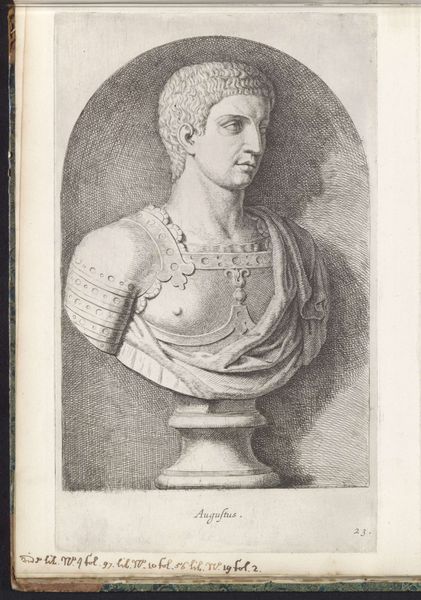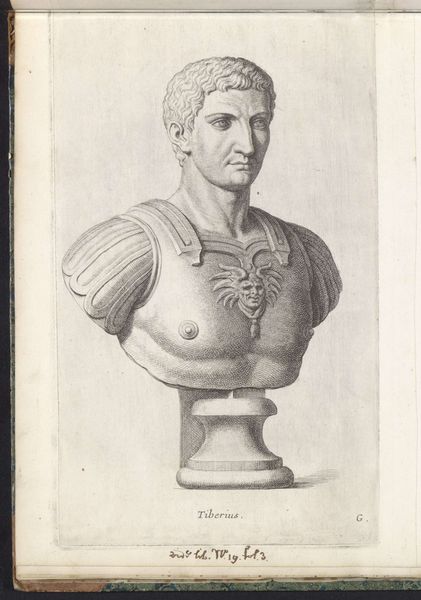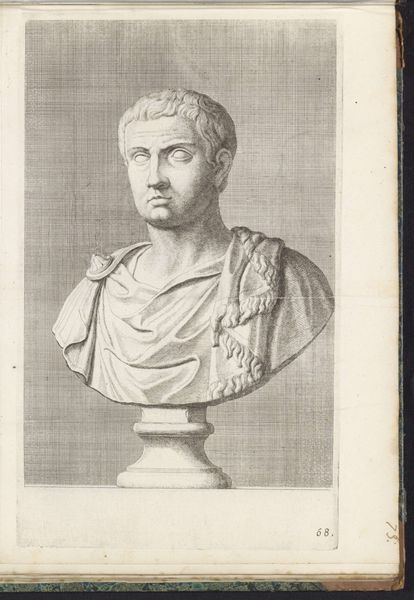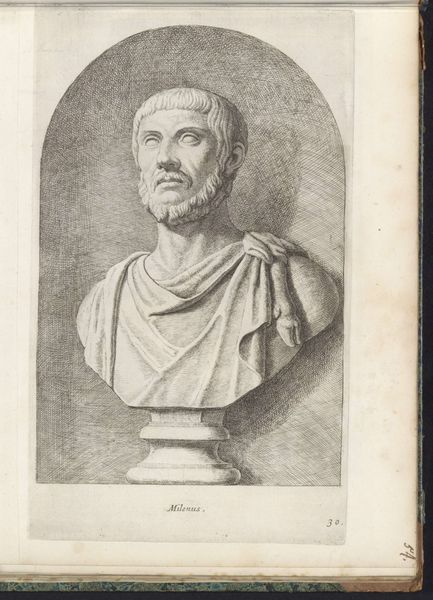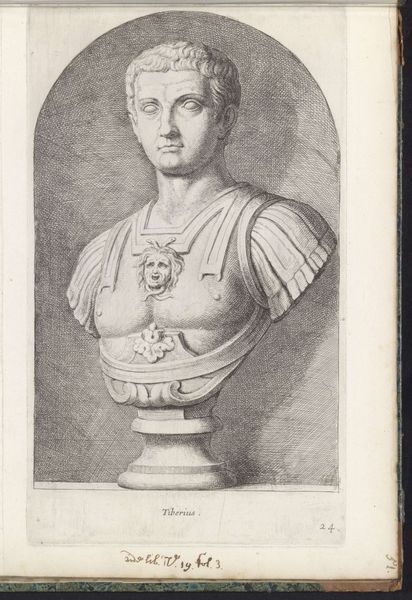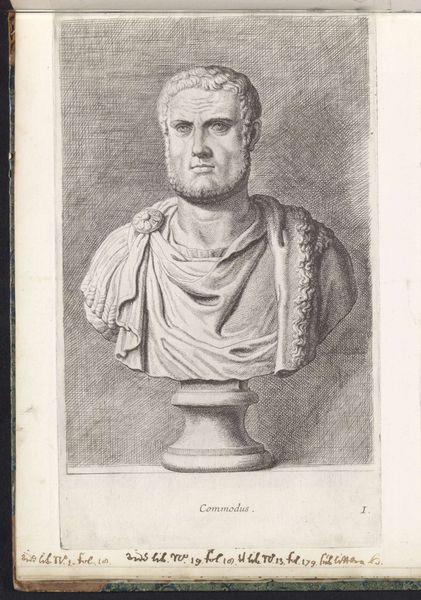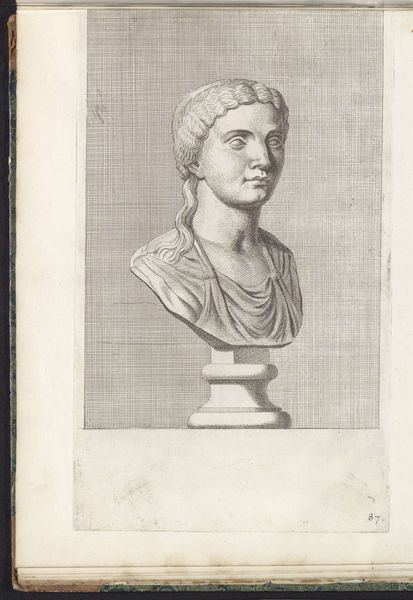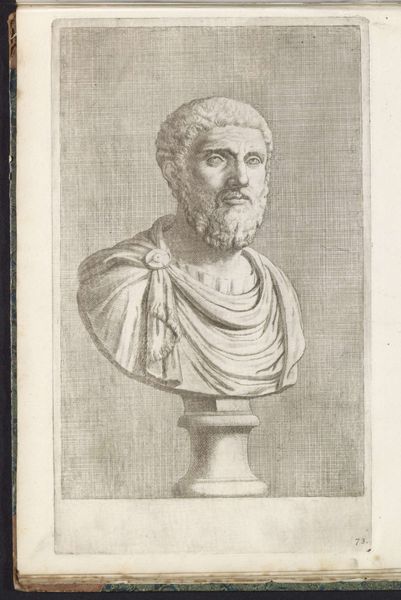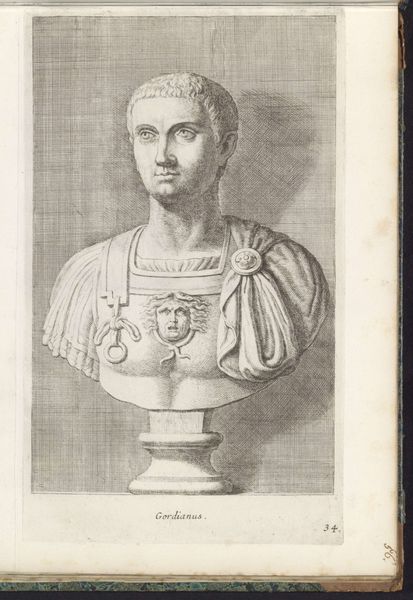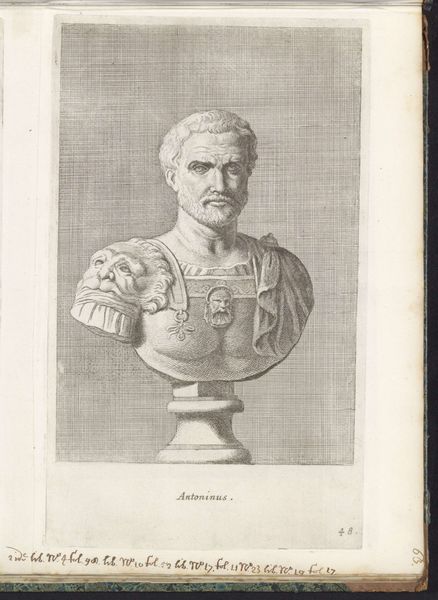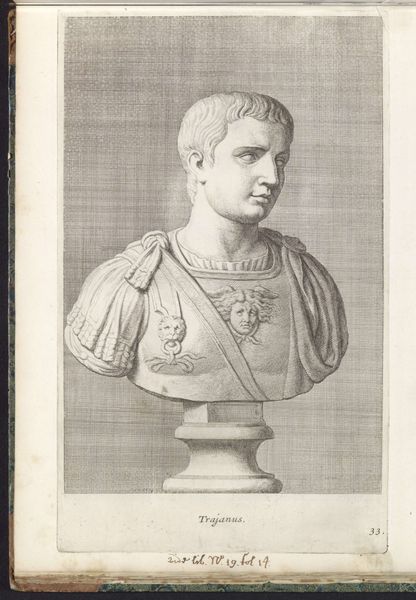
print, bronze, engraving
#
portrait
# print
#
classical-realism
#
bronze
#
history-painting
#
engraving
Dimensions: height 325 mm, width 194 mm
Copyright: Rijks Museum: Open Domain
This print of a man in armour was made by Hubert Quellinus, sometime in the 17th century. It's an etching, meaning that the image was created by biting lines into a metal plate, which was then inked and printed. Look closely, and you can see how the material constrains the artist, and how he’s also liberated by it. The need to render three dimensions using only lines forces Quellinus to be economical, even strategic. Notice how the armour is described using only vertical hatching, while the face has a more complex treatment, suggesting its greater importance. Also note the blank background, an absence of labor that throws the figure into sharper relief. Prints like this were made in multiples, of course. In that respect, they were early modern media – prototypes for the kinds of mechanically reproduced images that saturate our world today. What this print lacks in sculptural presence, it gains in communicative power. It is a relatively democratic art form.
Comments
No comments
Be the first to comment and join the conversation on the ultimate creative platform.
